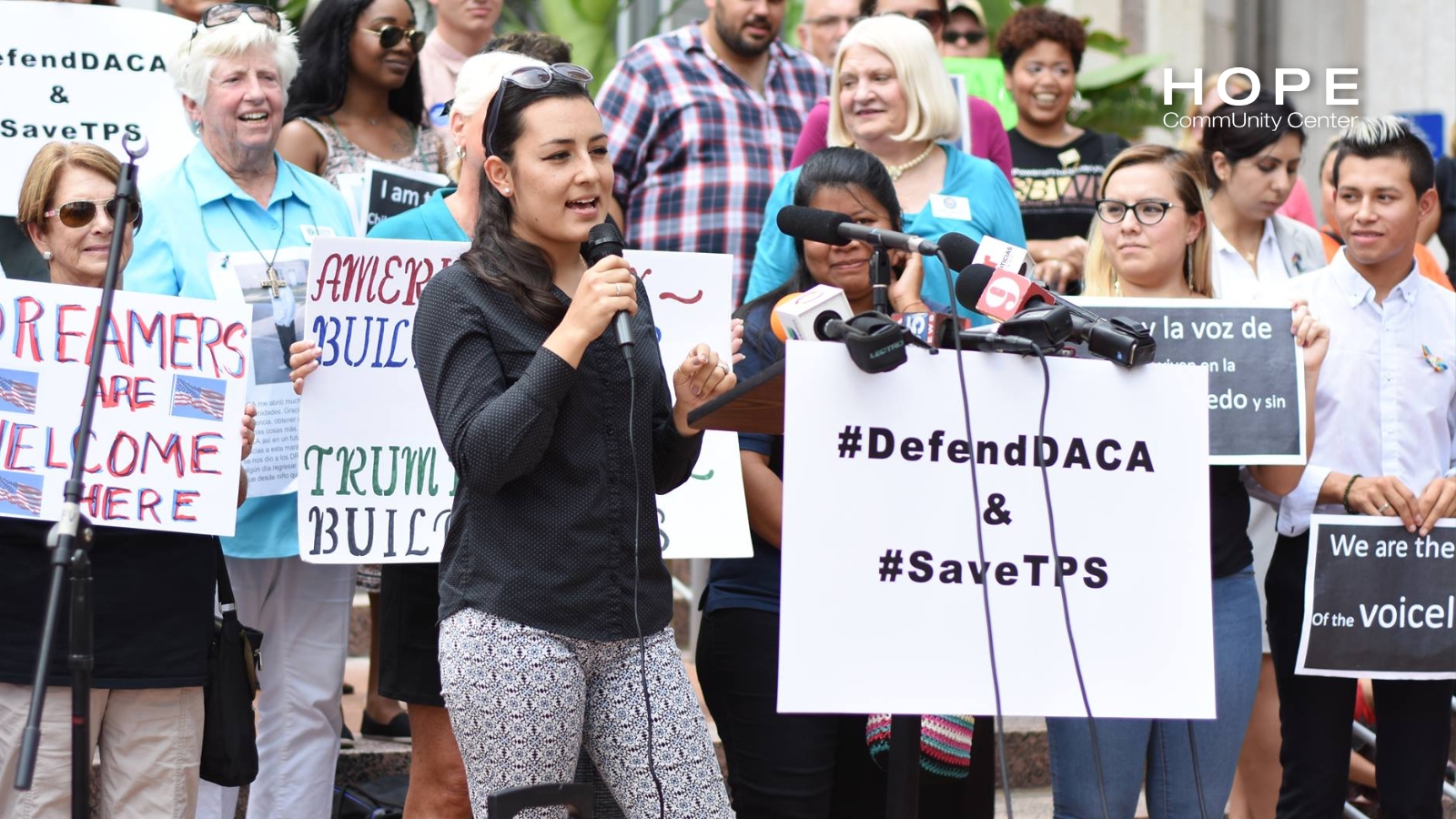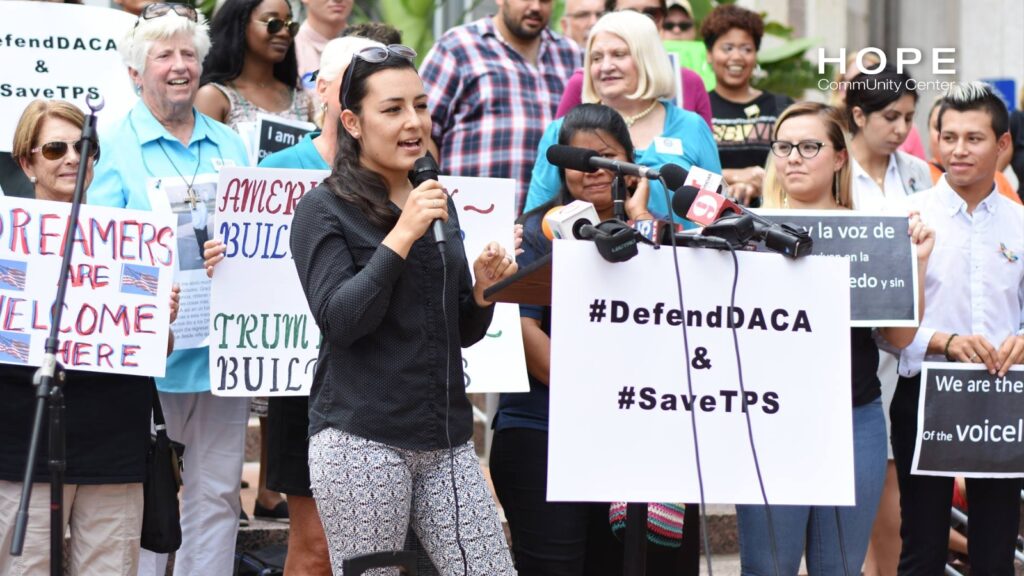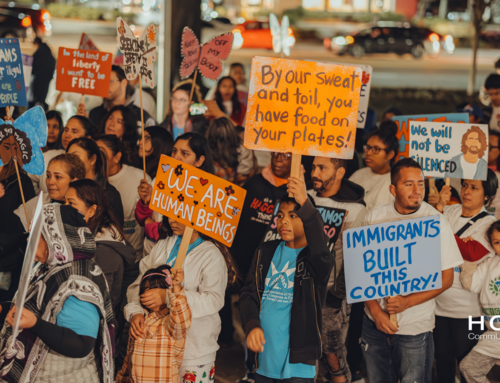#KnowYourRights – DACA EDITION

HCC shines a light on important immigration questions
Hope Community Center provides comprehensive preparation so that immigrants, regardless of their legal status, understand their inalienable rights in this country. For HCC, it is essential to assist the community in preparing for the future and what’s to come, even if that future is uncertain. We will assist you in any way we can and help you take the necessary steps to ensure your stability in this country. Recently, there have been a lot of questions about DACA, and we wanted to clear some of them up:
What is DACA?
Deferred Action for Childhood Arrivals (DACA) is a program that provides certain protections and benefits to undocumented immigrants brought to the United States as children. The program allows these individuals to temporarily remain in the country and work legally in the United States.
Who is eligible for DACA?
To be eligible for DACA, an individual must meet specific criteria, including the following:
- Must be under the age of 31 as of June 15, 2012
- Arrived in the United States before their 16th birthday
- Continuously lived in the United States since June 15, 2007
- Physically present in the United States on June 15, 2012, and at the time of making their DACA request
- Have no lawful immigration status as of June 15, 2012
- Are currently in school, have graduated or obtained a certificate of completion from high school, a general education development (GED) certificate, or are an honorably discharged veteran of the Coast Guard or Armed Forces of the United States.
What benefits does DACA provide?
DACA provides several benefits to eligible individuals, including:
- The ability to work legally in the United States
- Protection from deportation
- The ability to obtain a driver’s license or state identification card (in some states)
- The ability to access specific education and job training programs
How long does DACA last?
DACA benefits are granted on a renewable two-year basis. However, the program is currently in flux, and the future of DACA is uncertain.
What is the current status of DACA?
In September 2017, the Trump Administration announced that it was ending the DACA program. However, several federal courts have ruled that the administration must continue to accept and process renewal applications from individuals previously granted DACA benefits. The future of the program is currently being assessed.

What is the future of DACA?
The future of DACA is uncertain, but it is only a matter of time before something happens. If the program is stricken down, it will leave no protection for immigrants. While those with DACA benefits can currently work, they do not have legal status or a path to a green card and then citizenship.
What happens if DACA is terminated?
If the DACA program is terminated, many individuals currently protected will lose their ability to work legally in the United States and be at risk of deportation. However, what would happen to individuals with DACA protections remains unclear once the program ends.
What is Congress doing to address the uncertain future of DACA?
Several members of Congress have introduced legislation to address the uncertain future of DACA. However, it is not clear if any of these bills will pass or if they will be able to gain enough support to become law.
What can individuals with DACA do to protect themselves?
Individuals with DACA should consult an immigration attorney or a DOJ Accredited Representative to understand their rights and options. They may also consider renewing their DACA protections if they are eligible. It is also essential for individuals with DACA to stay informed about developments in the program and to stay in contact with their local immigrant rights organizations.
Important DACA updates:
- On October 5th, 2022, the Fifth Circuit Court of Appeals published a decision on the legality of the 2012 DACA policy. The Court agrees with the District Court that DACA was unlawful.
- On October 14, 2022, The District Court for the Southern District of Texas, ruled that DACA can remain in place, but with limitations.
- On October 31, 2022, the Department of Homeland Security’s final rule on DACA went into effect. This new regulation formally establishes the Deferred Action for Childhood Arrivals (DACA) policy.
What does this mean?
- If you are a recipient of DACA, you are still protected and will be able to continue to renew for now.
- If you are eligible for DACA but never applied, DHS can still accept your application, but will not be able to process it.
- Advance Parole remains open to DACA recipients.
- If your first DACA application has not been granted as of July 16, 2021, DHS will not grant your request.




